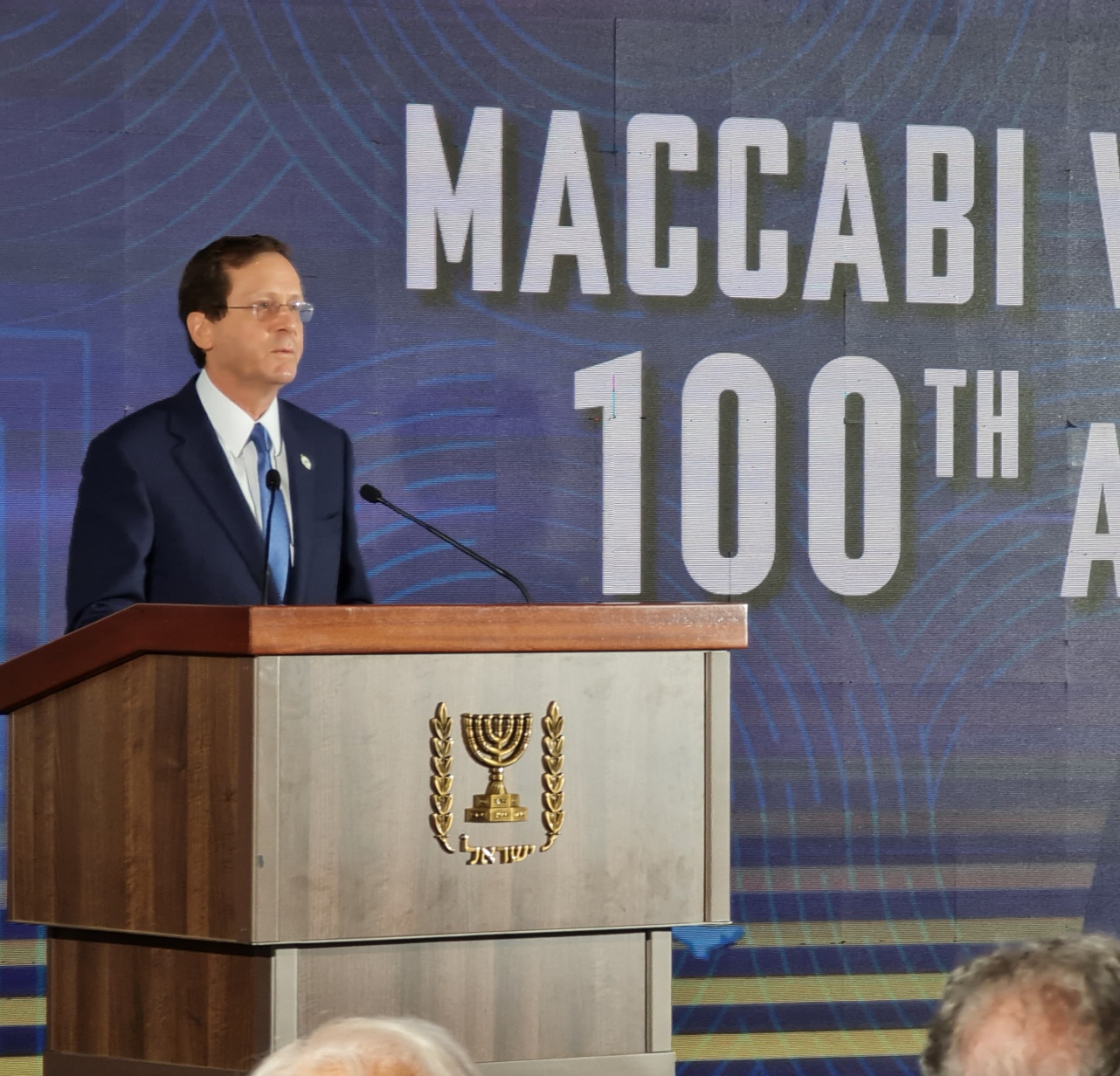Art & Culture
- Details
- Written by Maccabi World Union
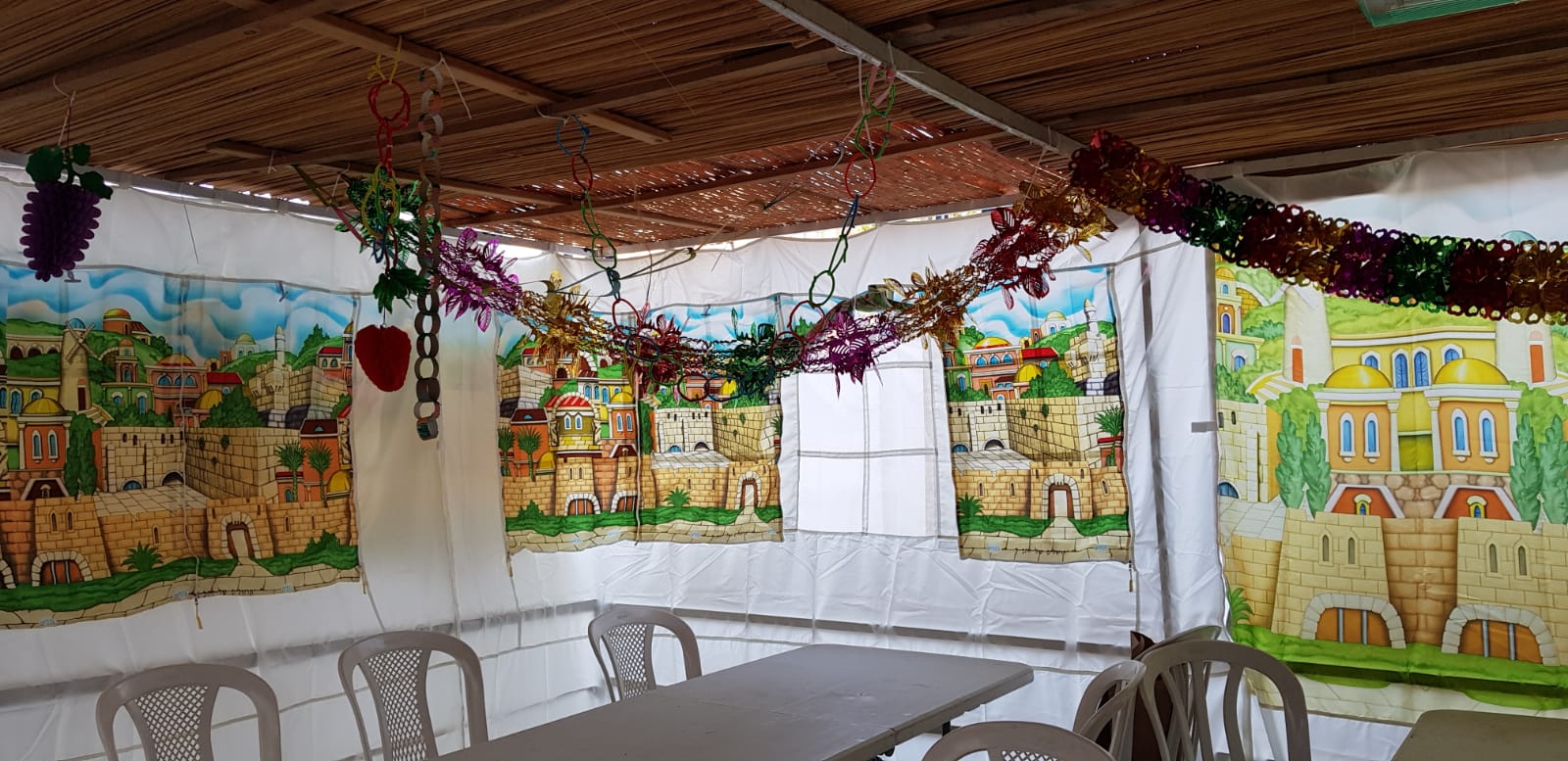
Succoth – חג סוכות
ופרוס עלינו סוכת שלומך!
Ufros aleinu Succat Shlomecha!
And spread over us Thy Succah of Peace!
Dear Friends,
The festival of Succot is also simply called “HeChag”, the Festival of Joy par excellence. The Children of Israel used to celebrate together in Jerusalem the fruitfulness of the Land of Israel, and the Divine Protection – with its main symbol, the Succah, the fragile booth which reminds us our 40 years of wandering in the wilderness on our way to the Promised Land.
The Succah conveys many meaningful messages to contemporary Jews. Phylus of Alexandria (1st Century c.e.) teaches that the humble Succah provides us a lesson on social behavior: in times of prosperity, each person should remember all the poverty that surrounds him/her; in a period of success, one should be sensitive to the failures of others; while in peace, the dangers of war should be ever-present in our consciousness. We must dwell in the Succah to develop our sympathy towards the setbacks in our own lives and towards those in the lives of others, and to commit ourselves to the repair of a world so much in need of renovation, warmth and consolation.
The Succah is also Succat Shlomecha, the Succah of Divine, Eternal and Infinite Peace. It is a utopian image and, at the same time, an earthly one. It reminds Humanity that the aspiration towards peace must be permanently maintained; it also stays that to achieve that peace, we must work with our own hands, "raising that Sukkah of Peace" such as we do with our little cabins that celebrate this Festivity. It is not a dream about pacifism: the renunciation of other values in pursuit of peace is not demanded. It is the great effort to end the sources of evil that lead to war – the fullest affirmation of true Divine Peace, which coexists with values such as Equality, Respect, Freedom, Justice and Goodness.
May the Almighty make this Festival of Succot the Joyful Festivity of Israel, and that the streets of the Land and the State of Israel reflect that prayer of Heavenly Peace – the real peace: the end of the threats of life against the Jewish State.
May the Almighty spread over us His Succat Shlomecha, His Succah of Peace over the Jewish State and the whole House of Israel everywhere, and over the entire world!
In these days and months of pandemic, may the fragility we feel deepen our sensitivity towards the weakness of the entire human race, to go out, together, hand in hand, determined and resolute to help each other.
May this Succoth be a celebration of hospitality, love and caring of our brethren and of all humankind.
With best wishes,
Chag Succot Sameach!
Chazak ve'ematz!
RABBI CARLOS TAPIERO
Deputy Director-General & Director of Education
Photo Silvia Golan
- Details
- Written by Spokesperson of the President's Office
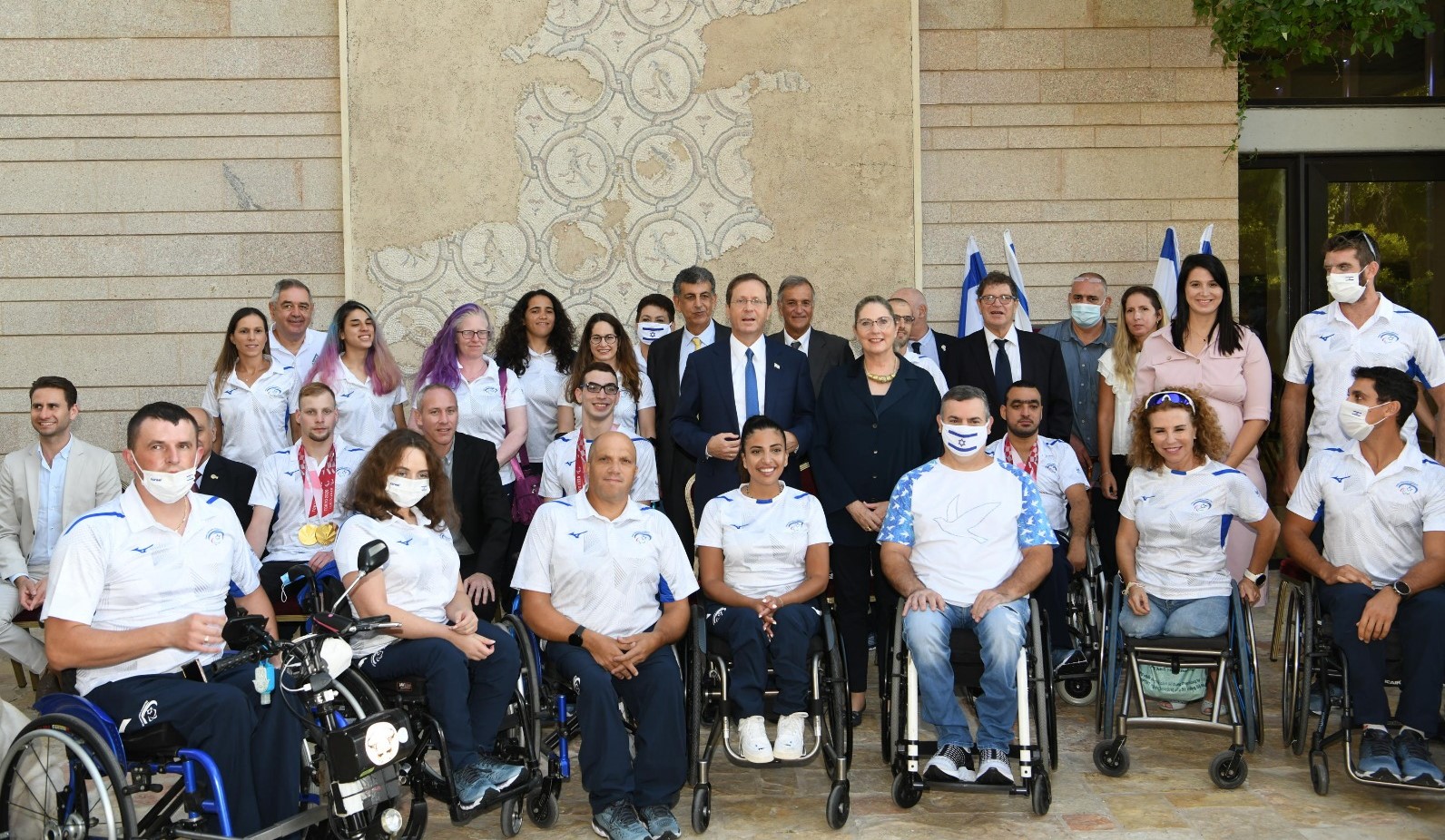
Today, Tuesday 14 September 2021 / 8 Tishrei 5782, President Isaac Herzog and First Lady Michal Herzog hosted an event to salute the Israeli delegation at the Tokyo 2020 Paralympic Games. They were joined by Culture and Sports Minister Hili Tropper, Israeli National Paralympic Committee President Dr. Yehoshua Dekel, Israel Sports Association for the Disabled Chairman Eli Birnbaum, National Insurance Institute Director-General Meir Spiegler, and the athletes of the Paralympic delegation.
The Israeli Paralympic delegation comprised 33 sportsmen and women, who competed in 11 sports disciplines. The delegation won nine Paralympic medals and broke a number of world records.
President Isaac Herzog began by saying: “You brought the whole People of Israel some extremely happy and moving moments. We followed you and kept contact with you, almost every day. We kept stopping our working day for another moment of the pride and joy that you brought us.
“Anyone who has ever competed in or even closely watched sports knows that it is not enough to be strong or agile to win. At the moment one’s muscles start to hurt… the doubts begin to nag. There are also voices in our heads that try to persuade us to give up, to drop it, to try again later… In sport, without the ability to persevere, without genuine attention to one’s body and abilities, without faith in the mighty powers of the soul that animate us, even the strongest and most agile athletes will lose.”
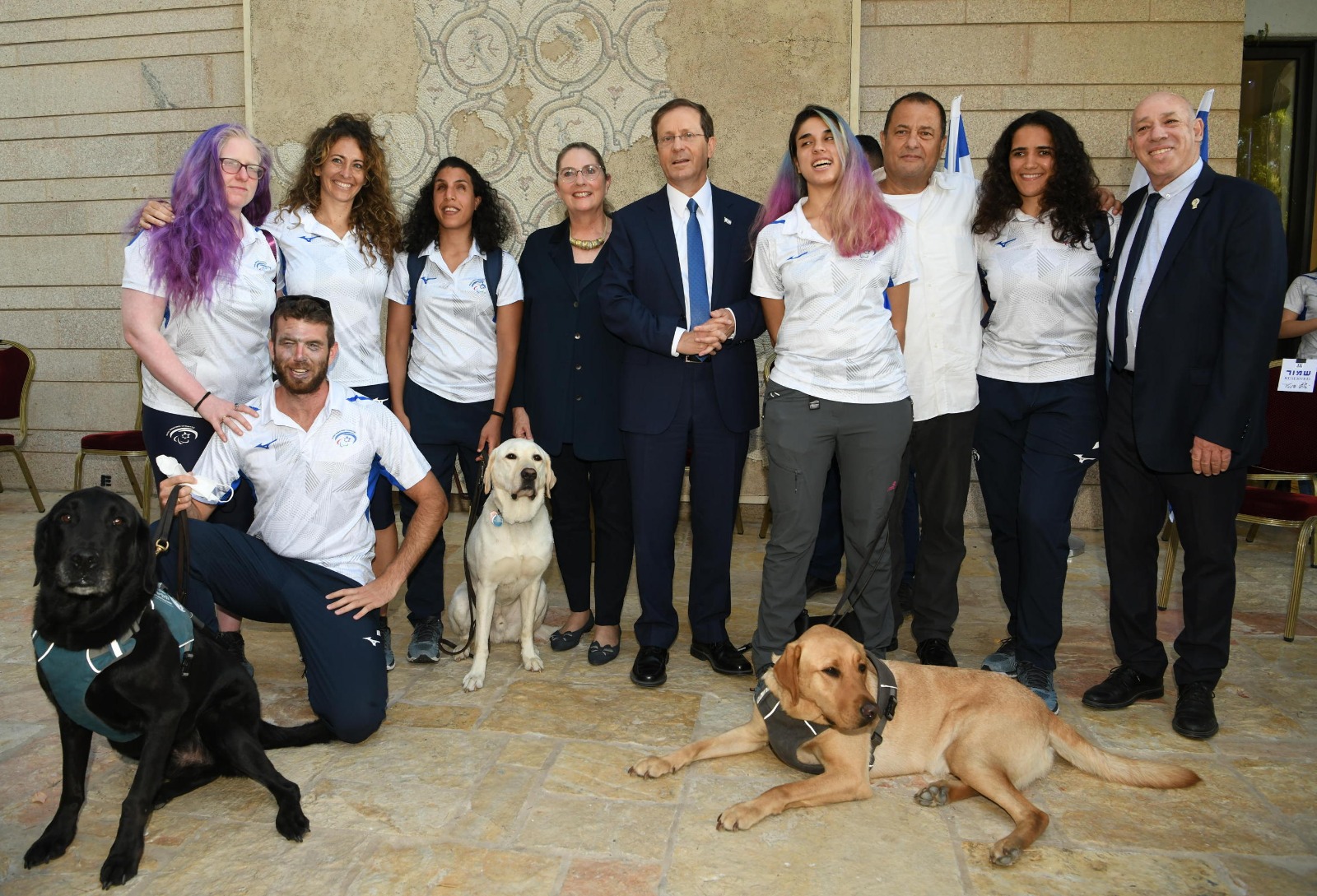
President Herzog addressed the powerful edge of Israel’s Paralympic athletes, emphasizing: “Having dealt with challenges from the day you were born, having blazed your own trail with perseverance, determination, and awesome willpower, you are all experts in the use of mental power. The spirit that you bring with you to sports is something that should be studied and should inspire. You keep winning because you believe it is possible. Because you know that you mustn’t sit quietly and wait for victory to come; you must bring it, with all your might. With the help of willpower, choice, hard work, and perseverance.”
President Herzog concluded by saying: “In the journey that each and every one of you is on, you are a living lighthouse for all those who, like you, want to spread their wings and fly. You are proof that even when it is hard, when the heart wants something, anything is possible. I am proud—we are all proud—to belong to a country with such fine sportsmen and women. May you have every success, and may you reach new records and peaks. May you all have a sweet and happy new year, and may you be inscribed in the book of life!”
Culture and Sports Minister Hili Tropper: “We always want to think that sport is bigger than just a result on the scoreboard, a medal on the podium, or victory at the last second. In recent weeks, you have told us a great, beautiful, and rich story about sport and achievements, but you have also told us a great and beautiful story about life and human beings. The Paralympic Games were a show of will power, aspiration for excellence, and the great human spirit.”
Paralympic gold medalist and swimmer Ami Dadaon: “The opportunity to represent the country, and bring pride and happiness to the whole People of Israel, and hear HaTikvah six times at the games, especially at a difficult year like the one we have just had—it’s a huge privilege. The whole delegation and I felt that we were representatives of the State of Israel, that everyone believed in us and was rooting for us. I hope that our achievements will set in motion a process that will improve Paralympians’ rights and put them at the top of the world.”
Photos: Amos Ben Gershom/GPO.
- Details
- Written by Pamela Hickman
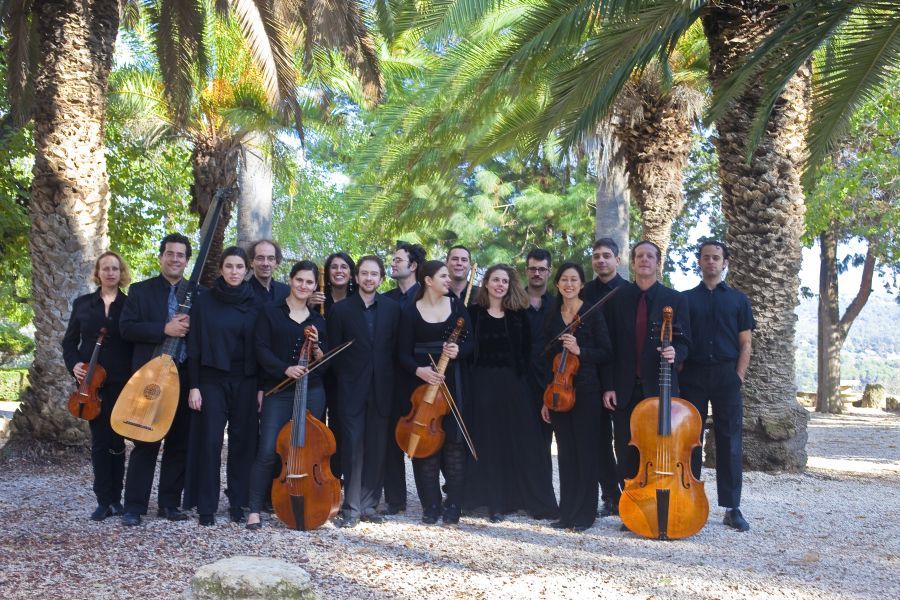
Have you been missing the Abu Ghosh Music Festival as much as I have? After a hiatus of two years, due to COVID-19 pandemic constraints, the Abu Ghosh Music Festival is about to spring back to life. Popular from the 1950s as an annual event, its organization was taken over in 1992 by music-lover Gershon Cohen and choral conductor Hanna Tzur, the revamped festival then taking place twice a year. Always well attended, people have been flocking to the two Abu Ghosh churches to hear the festival concerts, also enjoying the outdoor events and the relaxed, holiday atmosphere.
As the Kiryat Yearim Church is presently undergoing renovation, the Sukkot Festival (September 22-26, 2021) will take place at the Yitzhak Rabin Centre in Tel Aviv. The Rabin Centre, located on a hill, boasts commanding panoramic views of the Yarkon Park and of the city of Tel Aviv, beautiful gardens and an imposing auditorium – the Leah Rabin Hall. A new team will take over the running of the festival, most of its members active on the Israeli music scene - Amit Tiefenbrunn - music director, Shlomit Sivan-Rosen - head of production, Tessa Harari - management/production, Alon Harari - head coordinator and Yeela Avital - participation director and fundraising.
The 2021 Abu Ghosh Music Festival will offer four days of music of different styles - classical-, chamber- and folk music, Israeli- and ethnic music, with interaction between artists and audience and food and good wines; in short, a multi-sensory experience awaits all festival-goers! Concerts will feature some of the country’s finest ensembles - the Israeli Vocal Ensemble, the Carmel Quartet, Ensemble Barrocade, the Ramat Gan Chamber Choir, the Tel Aviv Collegium Singers and the Galilee Chamber Orchestra.
The festival will also host Hortus Musicus (Estonia), conductor: Andres Mustonen, in a program of Italian music and with Israeli mezzo-soprano Maya Amir as soloist. “From Bach to Shem Tov”, a program combining classical music with Israeli contemporary music will feature flautist Shem Tov Levi himself. The “Quinta and a Half” (“Kvinta Va-Hetzi”) Vocal Ensemble will present a complete a-capella program of Israeli repertoire - original and unique arrangements of some of the best-loved songs of Arik Einstein, Matti Caspi, Shlomo Gronich, and more.
And for those looking for some fiery emotion, El Fuego Del Flamenco will present a program of flamenco music and dance. And how about some Brazilian music performed by the Shorolha Ensemble for a magical night show in the Triguboff Garden overlooking the Tel Aviv skyline? In cooperation with the Polyphony Foundation, the program for Sunday September 26th will present Arab musicians in performances of Arabic- and western music. The Eldrawish Music Ensemble of the Galilee will perform Sufi music and dance.
There will also be a concert of French chansons, Arab poetry and music composed by pianist Saleem Abboud Ashkar, featuring a string quartet and soprano Nour Darwish. The festival will conclude with a concert titled “Stabat Mater”, performed by the Galilee Chamber Orchestra with Saleem Abboud Ashkar conducting.
For more information on the 2021 Abu Ghosh Music Festival and for ticket reservations: https://agfestival.co.il/
At the Yitzhak Rabin Center in Tel Aviv ,Rokah 77, Tel Aviv.
Schedule for Wednesday, September 22
Schedule for Thursday, September 23
Schedule for Friday, September 24
Schedule for Sunday , September 26
Entrance to the festival is according to the rules of the Green Pass.
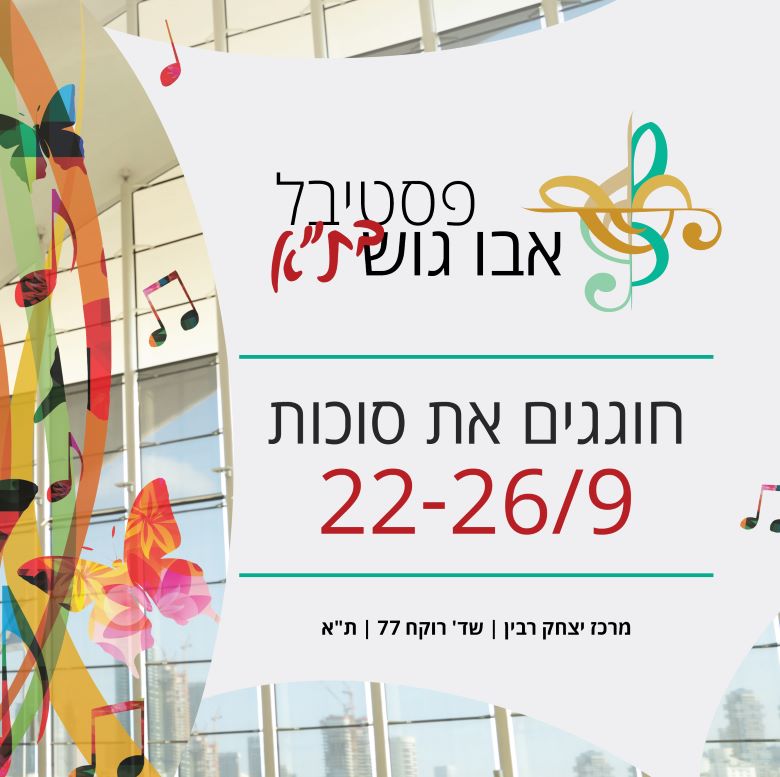
Photos Yoel Levy
- Details
- Written by Silvia G. Golan
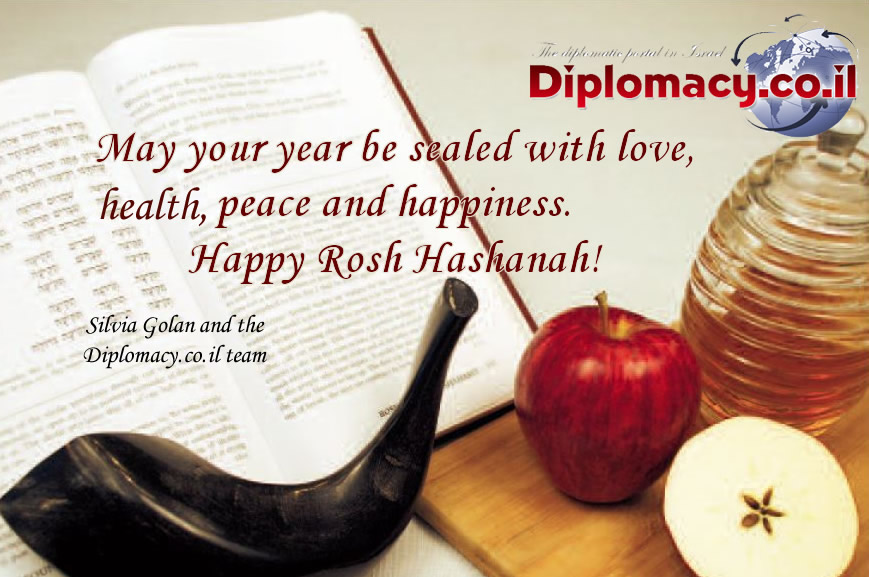
A number of key Jewish holidays – some of which are full legal holidays in Israel – will take place this year between September 6-28. We would like to provide the following brief summary.
Preparations for the Jewish New Year
The period preceding the Jewish New Year is marked by special penitential prayers, recited before the regular morning prayers, and the blowing of the ram’s horn (shofar in Hebrew) after the morning prayer service. Jews of North African and Middle Eastern origin begin to recite these special prayers the month preceding Rosh Hashanah (New Year), while Jews of European origin begin to recite them from the week before the New Year. These special prayers are said daily (except on the New Year holiday itself and the Sabbath) until Yom Kippur (16 September).
Rosh Hashanah
Rosh Hashanah (the two-day Jewish new year), the observance of which is mandated by Leviticus 23:23-25, will begin at sunset on Monday, 6 September and conclude at nightfall on Wednesday, 8 September. Both days are marked by special prayers and scriptural readings.
The centerpiece of the Rosh Hashanah service is the blowing of the shofar during morning prayers. (The shofar is not sounded on the Sabbath should either of the two days fall on Saturday.) Both days are full public holidays and, as on the Sabbath, there will be no public transportation or newspapers. In addition, many businesses, museums and other institutions, which are normally open on the Sabbath, will be closed over the holiday.
Rosh Hashanah is also characterized by special customs and delicacies. The first is the eating of apple slices dipped in honey, symbolizing the hope that the coming year will be “sweet.” The second involves going to a natural source of flowing water (such as an ocean, river, or spring) and reading a selection of scriptural verses – to symbolically “cast off” the previous year’s sins; this practice derives from Micah 7:19 (“…and You will cast all their sins into the depths of the sea.”) This ceremony takes place on the first day of Rosh Hashanah (or on the second, if the first day falls on the Sabbath).
The Period between Rosh Hashanah and Yom Kippur
The ten days between New Year and Yom Kippur (inclusive) are known as “The Ten Days of Repentance”. Jewish tradition maintains that this is a time of judgment when all people and nations are called to account for their deeds of the past year, and when their particular fates for the coming year are decided.
The day after the New Year holiday is a day of fasting known as the Fast of Gedaliah, and commemorates the murder of Gedaliah, the Jewish governor of Judea, who was appointed by the Babylonians after they captured Jerusalem in 586 BCE; the episode is recounted in II Kings 25:22-25. (When the day after Rosh Hashanah is a Saturday, the fast is postponed by one day.) The fast will extend from sunrise on Thursday, 9 September until nightfall. Special scriptural readings are recited; but the day is not a public holiday and businesses and transportation will run as per their regular schedules.
A single Sabbath, known as the “Sabbath of Repentance”, always occurs between Rosh Hashanah and Yom Kippur. This Sabbath (15 September this year) is marked by a special reading from Hosea 14:2-10, beginning with, “Return, Israel, to the Lord your G-d.”
Yom Kippur
Yom Kippur (Hebrew for “The Day of Atonement”) begins at sunset on Wednesday, 15 September, and concludes at nightfall the next evening. Its observance is mandated by Leviticus 16:29-31 and 23:27-32. The holiest day of the year, Yom Kippur is the day on which, according to Jewish tradition, our fates for the coming year are sealed. Synagogue services – centering on the penitential prayers – will continue for most of the day and include special scriptural readings (including the Book of Jonah in the afternoon). Memorial prayers for the deceased, said four times a year, are recited on Yom Kippur. At nightfall, the shofar is sounded once to mark the end of Yom Kippur.
Yom Kippur is a full public holiday in Israel and almost all establishments will be closed. There will be no radio or television broadcasts. Since Yom Kippur is a day of introspection, completely separate from the normal course of daily life – the physical aspects of our lives are sublimated while we concentrate on our spiritual concerns – the day is marked by a full (sunset to nightfall) fast. The wearing of leather, the use of cosmetics, bathing and marital relations are likewise forbidden.
Sukkot
The seven-day Sukkot festival, mandated by Leviticus 23:34-35 and 23:39-43, begins at sunset on Monday, September 20 and concludes at nightfall on Monday, September 27. The first day, Monday September 20 at nightfall until Tuesday evening nightfall, is a full public holiday. All seven days of the holiday are marked by special prayers and scriptural readings – including the Book of Ecclesiastes, which is read on Saturday, 29 September. Sukkot is a joyful, family-oriented holiday, which follows – and provides a contrast to – the somber, introspective and private character of Yom Kippur.
During this period many businesses and institutions will either close or operate on a reduced basis. Schools are closed, and families often enjoy vacations together.
Sukkot is characterized by two main practices. Jews are enjoined to build, take all of their meals in, and (if possible) sleep in, temporary huts topped with thatch or palm fronds during the festival. These huts (Sukkot in Hebrew) commemorate the temporary, portable dwellings in which the Jewish people lived during their 40-year sojourn in the wilderness that followed their liberation from slavery in Egypt. The second main Sukkot observance is the special bouquet of the “4 species” – consisting of a closed palm frond, a citron, a myrtle branch and a willow branch – that is held during morning prayers on each of the seven days (except the Sabbath); its origins derive from Leviticus 23:40, many traditional explanations of its symbolism have been cited. Throughout Israel Jews can be seen enjoying meals in sukkot of all kinds, and reciting special prayers of thanks with the 4 species.
Shemini Atzeret (Simhat Torah)
The Shemini Atzeret (literally “The Eighth Day of Assembly” in Hebrew) holiday immediately follows the last day of Sukkot, this year beginning at sunset on Monday, September 27 and concluding at nightfall on Tuesday, September 28. Its observance is mandated by Leviticus 23:36. It is a full public holiday. (Even though it follows the seven-day Sukkot festival and is often considered part of Sukkot, it is, in fact, a separate holiday. The special bouquet is not used and the obligation to sit in the sukkot no longer applies.) The day’s prayer services include the memorial prayers for the deceased, as well as the prayer for plentiful rainfall during the coming winter.
Shemini Atzeret, however, centers around its special scriptural readings. On Shemini Atzeret, the yearly cycle of Torah (the first five books of the Bible, i.e. Genesis to Deuteronomy, one section of which is read on each Sabbath during the year) readings is both completed and begun anew. This event is accompanied by dancing and singing, sometimes continuing for several hours; in religious neighborhoods, these celebrations often spill out into the streets. Thus, the holiday is also referred to as Simhat Torah (“Rejoicing of the Torah” in Hebrew).
Wishing a happy, healthy, and successful New Year from www.diplomacy.co.il & https://debateforpeace.org
Silvia G Golan and Diplomacy Staff
- Details
- Written by President of the State of Israel office
.President Isaac Herzog and the First Lady celebrate the Maccabi World Union's 100th anniversary celebrations at Kfar HaMaccabiah
Today, President Isaac Herzog and First Lady Michal Herzog participated in the Maccabi World Union's centenary celebrations at Kfar HaMaccabiah in Ramat Gan. The event was also attended by Culture and Sports Minister Hili Tropper, MWU chairman Amir Peled, Maccabiah Games CEO Roy Hessing, and Israeli Olympic medalists.
During the event, President Herzog was given a surprise gift: a photograph from the Twelfth Maccabiah Games, featuring his late father Chaim Herzog in his role as President with the WMU's leaders and its then-chairman, the late Yisrael Peled, father of the current chairman, Amir Peled.
President Herzog began his speech by saluting the Maccabi World Union for a century of activity: "Members of Maccabi in Israel and around the world, happy birthday! One hundred years is no trifling matter for any organization, certainly for such a significant Jewish, Zionist, educational movement like the Maccabi World Union. Maccabi represents a wonderful combination. It succeeds in being both a symbol of excellence in sport, of ambition, and of the pursuit of victory; and it is also a Zionist educational movement that reaches young Jews around the world and kindles the spark of Zionism in them. Not everyone knows it, but I was born to a Maccabi member."
President Herzog noted his family's special connection to the movement: "My father, the late Chaim Herzog, was Ireland's bantamweight boxing champion in his youth, and of course an ardent member of the Maccabi club in Dublin. I mention my father's youth not as an old memory, because as everyone knows, being in Maccabi is not something that goes away after a few years. As you see in the photograph on the screen, my father was a Maccabi member and always remained a Maccabi member.
"The movement's most outstanding enterprise, the Maccabiah, has also been with me at every station in life. The Maccabiah Games are not just a sporting enterprise, but a national, Zionist, educational enterprise of historic importance, whose name precedes it. It would be hard to exaggerate the importance of the Maccabiah Games to the Jewish People, to Jewish peoplehood. Its influence on this enterprise, on the most important building blocks of our nation, is evident every day and every hour.
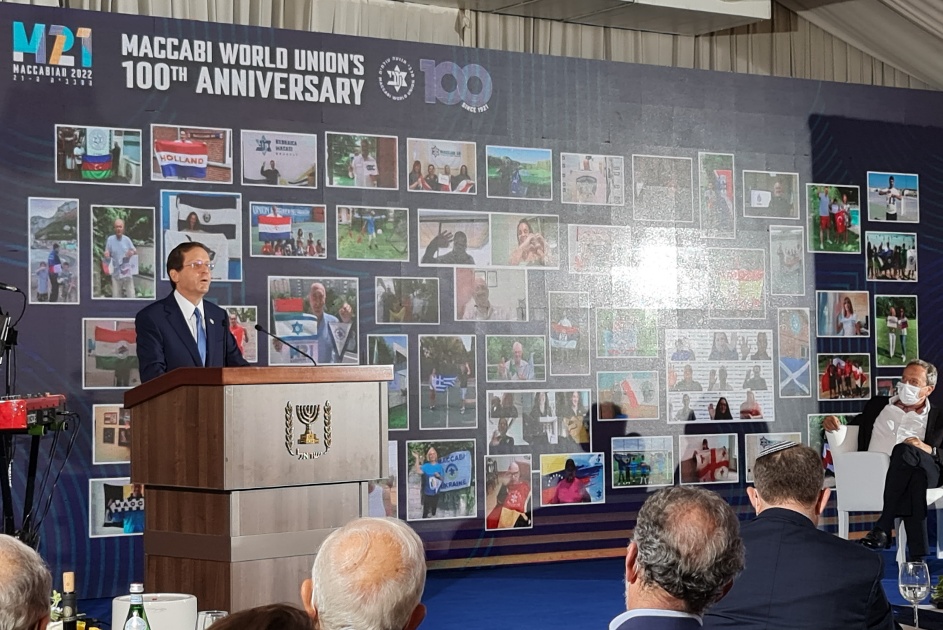
"The Maccabiah has become the second-largest sporting competition in the world after the Olympics. It is also the biggest Jewish-Zionist gathering in the world, and tens of thousands of athletes are expected to come to Israel in a year for a true sporting celebration. There will be athletes here of all ages, from 12 to 90. Among them will be athletes with cognitive and physical disabilities. Thank you to you, the leaders of Maccabi, for wisely opening the gates to everyone. The medals won by Artem, the Maccabi member who brought us a gold medal, and his friends are important and precious, but the participation of people with disabilities warms our collective Jewish and Zionist heart."
In a special message in English to members of the Maccabi World Union all around the world, he added: "The centenary of the phenomenal Maccabi World Union is a celebration of Jewish values and a display of continuous Jewish unity, love of Israel, and passion for sports. Although miles apart, we know that we all belong to the same people, and prolonged social distancing and imposed restrictions cannot diminish the bond we share. I applaud Maccabi members, in every club and continent around the globe, for your fortitude and dedication, and I look forward to greeting each and every one, in Israel, a year from now, at the Maccabiah."
President Herzog ended by saying: "Shana Tova Umetuka to the Maccabi family and all its fans. May we all merit a 'sound mind in a sound body' this year, and may Maccabi continue to flourish for at least another century! Happy birthday!"
Photo credit: Silvia G.Golan


